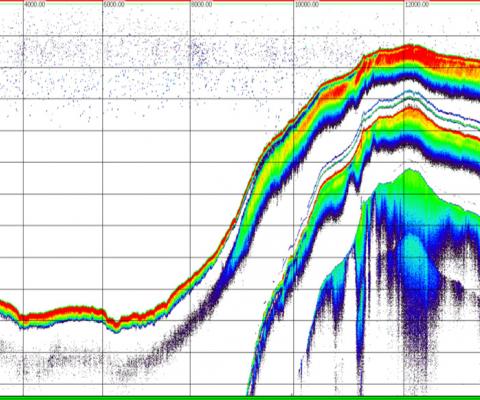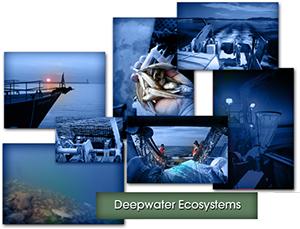
-
Coastal habitats of the Great Lakes are complex, dynamic systems that support high production of both resident and migratory species, are centers for regional biodiversity, and process and export materials that support production and water quality in the lakes proper. The ecosystem services provided by coastal landscapes and habitats are vital for humans in that they maintain the landscapes that motivate humans to reside in or visit the Great Lakes. The USGS is uniquely positioned to conduct coastal ecosystem research on many scales (e.g., microbial analysis to landscape development) because as an agency our research capabilities extend from the headwaters of watersheds to the deepest habitats in the Great Lakes. The Center has both biological expertise and the ability to create teams that include physical scientists with specialized knowledge and expertise. Center research will occur across multiple scales and disciplines and explore the connectivity between the lakes and between aquatic and terrestrial ecosystem processes in a dynamic environment.
-
Historically, the Center has been the basin-wide leader in fisheries science in deepwater habitat. In fact, the Center has invaluable long-term data sets (dating back to the 1970s) that have been used to understand how biotic and abiotic factors drive long-term fish community and population dynamics. As a result, the Center is well positioned to be a leading contributor to an emerging interdisciplinary approach to understanding Great Lakes food webs. In addition, Center scientists are increasingly using our fleet of research platforms to sample biota at lower trophic levels. The Center continues to develop ecosystem-level models that improve our understanding of food web structure and function, which also allow managers to explore different "what if" management scenarios.
As a whole, deepwater research will build on its strong history by collaborating with complementary researchers from agencies and academic institutions to 1) deliver and improve on our long-term fish population data series and 2) conduct research that identifies critical food-web interactions and ecosystem processes that support Great Lakes ecosystem services.
-
Given the complexity of nature and our limited ability to monitor status and trends of species and ecosystems, problems in ecosystem structure and function can easily reach critical states before the scientific community is adequately aware of them. An emerging issue of particular contemporary concern is rapid ecological change. Recent examples in the Great Lakes and vicinity include invasions, such as by dreissenid mussels, Asian carp, and harmful algal blooms that have become more noticeable in the region, especially in shallower bodies of water. Rapid change implies a large change in ecosystem composition over a short time. Awareness of potential emerging problems can help us prevent these problems from reaching that critical state. The Center will devote time and energy to awareness of emerging ecological issues, to assess their likely importance, and to prioritize undertaking research on these issues. The Center will also devote time and energy to considering how new techniques and technology can change the effectiveness of the science we undertake.
-
The Great Lakes are under enormous pressure from multiple sources including changes in land use patterns, industrial and agricultural contaminant inputs, invasive species, and climate change. These pressures influence species diversity, fish and wildlife habitats, and risk of human disease. The effective response of the environment ultimately determines the viability and sustainability of these resources. In order to evaluate environmental health effectively, it is critical to develop methods to demonstrate changes, evaluate health risks, and explore potential approaches to mitigate detrimental effects of stressors. We will continue to take the lead in assessing changes in environmental health, modeling current and predicted outcomes, and developing new methods of monitoring to anticipate emerging threats. We will expand our future activities to cover a larger spatial scale, examining whole lake and basin perspectives, and extrapolate our findings across jurisdictional and bi-national borders.
-
Invasive species across taxa have had substantial ecological effects in the Great Lakes region. This region encompasses a large geographic area, and is particularly vulnerable to invasive species transport due to its interconnected waterways and role in the international shipping industry. The Center has a long history of conducting research on invasive Great Lakes species, beginning with investigations of rainbow smelt population biology in the 1930s. Perhaps the best known example of Center work on invasive species has been its long standing research program involving the sea lamprey. To understand ecosystem impacts of invasive species, current approaches integrate observational, experimental, and modeling methods to characterize the biotic and abiotic drivers of invasion. The Center’s research program will provide a systems perspective to promote Great Lakes ecosystems where invasive species or their negative impacts are prevented, managed or eradicated. Center researchers will produce scientifically grounded, innovative, and proactive and interdisciplinary research in support of this vision.
-
In the last 200 years the Great Lakes region, like many regions in the world, has experienced considerable changes due to human activity. The alteration of biological communities and habitats, fragmentation, introduction of invasive species, and changing climate are potentially the dominant alterations of the physical environment of the Great Lakes region and the waters therein. Restoration and rehabilitation of native species, habitats, and ecosystems is an integral research focus of the Center. The Center will maximize its influence in restoration of the Great Lakes due to its expertise in species biology, community dynamics, and ecosystem processes. The Center will conduct state-of-the-art restoration ecology research that will enable the Great Lakes region ecosystems to be restored to resilient and sustainable populations, communities, and ecosystems with dynamic and unimpaired processes at appropriate scales.











